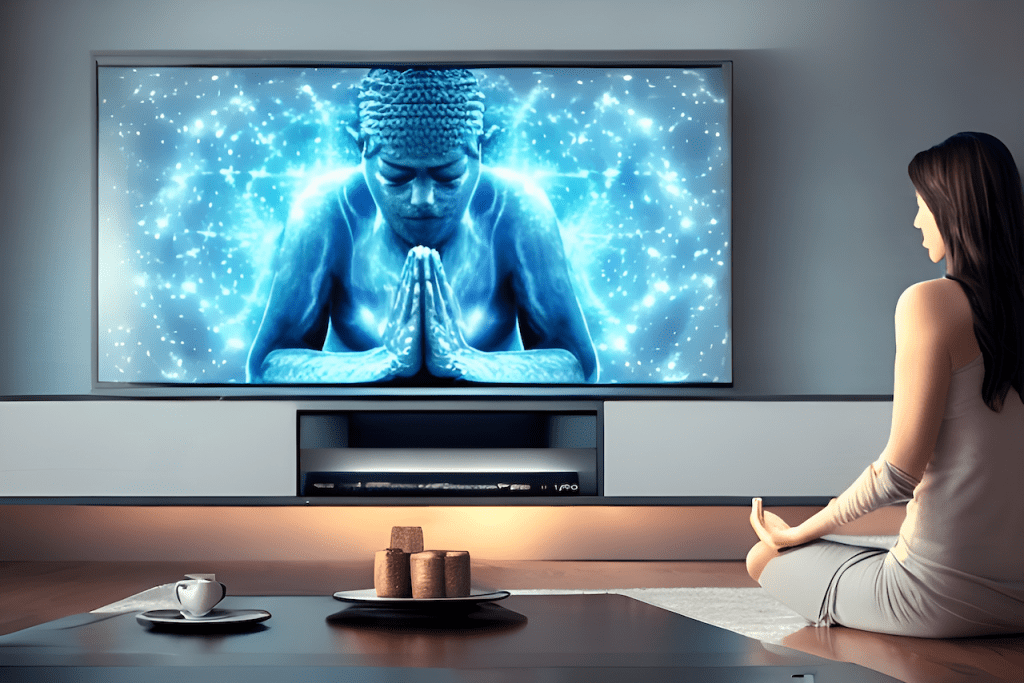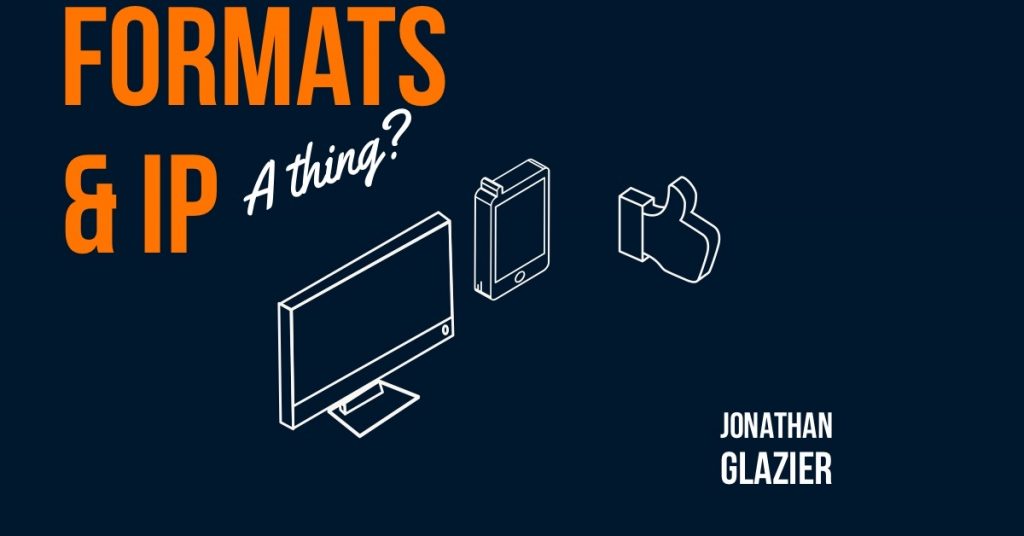The Future of Linear TV and Being Present inexorably linked? It’s far enough away from the new year for all those resolutions to start failing! Have you been writing journals, meditating, and giving thanks during your brain dump? Yes, the idea of being present is big business, an app-driven online antidote to overusing social media and drifting off into a virtual unreality of detachment. Always ironic that 90% of the marketing for these journals, even the paper ones, are all through social media!
What has The Future of Linear TV and Being Present got to do with each other? There was a fascinating article in Broadcast LINK setting out the move to an online-only future and if and when we switch off linear TV for good.
BBC director general Tim Davie laid out the future of TV at an RTS event on 7 December last year, at least in BBC terms. The DG warned the market will shift towards an internet-first future by 2030, leading to switching off many linear TV and radio channels.
“A switch-off of broadcast will and should happen over time, and we should be active in planning for it,” he said. Furthermore, he added: “We are working on how an online BBC could be the best version of the BBC, shaped around people’s interests and needs – a daily partner to your life, bringing the BBC together in a single offer with personalised combinations.”
As a lover of live directing, I hope, actually I know, there will always be a place for live as-it-happens content, even if it is delivered over the internet as a live stream. I know from my show Good Game Asia that streaming is a part of the esports gaming and lifestyle vlogging ecosystem.
I want to go more into the philosophical argument for linear TV. Television schedules have long timetabled our lives. I recall the rush home twice a week to catch Blue Peter and reports of empty streets as the final episode of the original prime suspect was shown.
I predicted event TV or an appointment to view TV at a talk and the Royal Institute many years ago. At the time, I thought live entertainment was critical to broadcasters’ future in a growing social media presence. The idea of FOMO, I have a new acronym, FOSMS, Fear Of Social Media Spoilers, i.e. if you don’t watch Love Island, all your friends will be talking about the latest bombshell of dumping. So we timetable our lives, making space for the event, which we can share with friends and family in real time.
When the Queen’s died, we all came together on TV to share the experience with wall-to-wall live coverage on all the channels. This week we all share the grief of a family enduring the nightmare of a missing person. It is an event the whole country seems to be talking about; although one of my disconnected children walked into a news broadcast this morning oblivious to the story,
This brings me to the connection—the idea of being present. Should we all be present as we go through the current strife of strikes by essential services, government scandals, and the war in Ukraine? Isn’t that what linear TV brings us? Even while watching recording programmes, there’s still a feeling that we could get a “we interrupt this programme” announcement. We are present and connected. There’s also a practical consideration; it is easier to hack the internet that an entire broadcast network.
So is linear TV coming to an end? Are we going to see the delivery of linear TV through the internet? Given the security issue, should we maintain digital broadcasting? Is there a new technology that can deliver this as a backup to the internet?
Then there’s the social angle of the structure—the timetabling of our lives. We eat and then sit down to “Strictly” or revise until 9 when we chill watching “Love Island.” Meals and eating together have passed as typical times to be present in family life. Some families can unite around sporting events.
How will the demise of linear timetabled TV impact our ability to be present? When first contact happens, where do we go to experience the landing? Suppose there is another pandemic; how do we all connect for those briefings, even if we return to social media to discuss?
I suppose I am asking, “where is the community?” the conduit for community communication.
One hundred years ago, it was the BBC, one community for those able to afford a television.
Then D.E.R. gave us TV rentals, and mass access to TVs became a reality. It wasn’t long before big business cottoned on the captive nature of the audience, advertising became TV’s paymaster, and independent commercial broadcasting was born. We had two communities, BBC and ITV, and then other channels joined; other platforms came about through BSB and then Sky with yet more separated communities. However, there was a common thread in all these communities; they were on all the time and simultaneously. Next came the Streamers – Netflix, Amazon, Apple, Disney etc. Now we have entertainment anytime, anyplace. At the moment, we still have 24-hour linear news and broadcasters. Our goto places during times of trouble, national grief or celebration. But we have many communities to serve through groups on social media. In some cases, small groups.
We still need the comfort of one place of safety, a place of trust with no barriers to entry and no passwords or subscriptions to join. As the zombies run wild, before the power cuts out forever, I want to hear Hugh Edwards telling all my neighbours and me to lock the doors and keep quiet. Then I believe we will have a fighting chance of survival.
Jonathan Glazier: TV Director, Executive Producer, Lecturer at University for the Creative Arts. Former Head of BBC Light Entertainment and International Formats, MD FoxWorld TV UK. Creative Director at Talent TV, Creative Director Endemol Asia.
You can find me on social media at.
https://linktr.ee/JonathanGlazier
Pro social media



